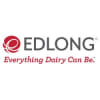As leader of a company that traces its origins back to 1866, General Mills CEO Jeff Harmening has a lot of history to look back on.
Through world wars, economic depressions and recessions, revolutions in food and plant safety and global pandemics, General Mills has continued to bring generations of consumers food. In a webinar on leadership hosted by the Consumer Brands Association on Wednesday, Harmening said he was recently looking back at company newsletters from the 1918 Spanish flu pandemic. The advice was remarkably similar to what companies are telling their employees today: wash your hands, avoid crowds, employ social distancing.
"The first thing I would say about looking at all of our history is that we're still here. And, you know, it gives hope that there is another side of this, and I think that's important," Harmening said. "But more importantly, as a company, we've actually performed as well or better than we did before COVID."
Harmening credits the company's performance to taking care of people, both General Mills employees and the community. He said he's been getting the company through 2020 — a year shaped by both the coronavirus pandemic and protests of systematic racism that started in General Mills' home city of Minneapolis — through trying to communicate effectively, work as a team and be as authentic as possible. General Mills is the 44th oldest company on the New York Stock Exchange, he said, and the company's storied history brings with it a strong sense of responsibility.
The coronavirus pandemic has upended businesses around the globe, making it difficult for things to continue the way they had. Companies have had to do a lot of adapting, and Harmening said he's tried to navigate through the situation by placing a premium on clarity.
"I think that's particularly important in the times we're in now because so many people want certainty," Harmening said. "And when you're facing a global pandemic, or when you're dealing with issues that are deep and long-standing like systematic racism, it's really hard to have certainty. But what you can have is clarity. Recently, we issued our fourth quarter results and investors and analysts wanted us to issue guidance, which we didn't do, because I think it could leave a false sense of security on what is certain. But what we did was be clear about what we're trying to accomplish."
What the company is trying to accomplish first and foremost, Harmening said on the earnings call with investors, is produce food for consumers who need it. To do that, he said, the company will be competitive, use efficiency to be able to invest in the company's brands and capabilities, and reduce leverage to increase financial flexibility in a difficult time.
In the webinar, Harmening said his goal for General Mills is for the company to come out of the pandemic stronger than it was before. He made the analogy to being able to walk and chew gum at the same time. The company needs to produce food and protect employees under difficult circumstances, but it also needs to keep innovating and continue working toward sustainability. As long as the company continues to make progress on these aspects, it is getting closer to reaching that goal.

As a global company, General Mills has been working through the pandemic since late last year, when the first cases of COVID-19 appeared in China. The company has a significant presence there, though through moving quickly and making health and safety changes, Harmening said there were no coronavirus cases among China's General Mills employees. The experience in China taught him early on the company could indeed do its work during a pandemic, and General Mills put together a global task force in January so that representatives of the company in different countries could collaborate and share best practices.
Business has been booming for General Mills. In the most recent quarter, net sales were $5 billion, up 21% compared to a year ago, according to the company's earnings report posted July 1. For the previous 12 months, net sales were 5% higher than the 12 months before.
While the times are unprecedented, Harmening said in the webinar that he thinks some of this growth can be sustained. The pandemic has sharply increased at-home food consumption. Medical experts say the pandemic will continue for months, until a vaccine is found, so the current patterns are likely to continue. Once a vaccine can allow consumers to get more back to normal, Harmening said they may keep doing some of the things they started during the pandemic, like continuing to bake and make food at home. Plus, the economic impact of the pandemic is deep, with millions of Americans out of work and the economy in a recession. Harmening said consumers tend to eat more food at home in tighter economic times.
But, he said, the comfort that General Mills' suite of brands has brought to consumers will also factor into future growth.
"So much is changing, whether it's the landscape on race or whether it's the global health pandemic," Harmening said. "People yearn for some certainty and yearn for something they can count on. And for us and for a lot of people in our industry, it's our brands that they count on. They go back to the brands that they know and trust. And what we see is that household penetration of our brands has gone way up, our repeat rates are pretty good. I can't quite say for sure how much of the demand is going to stick. I think that some of it will, because I think consumers have found something, in some cases, that wasn't there before, and we have to do our job to make sure that we maintain that."
"When you're facing a global pandemic, or when you're dealing with issues that are deep and long-standing like systematic racism, it's really hard to have certainty. But what you can have is clarity. Recently, we issued our fourth quarter results and investors and analysts wanted us to issue guidance, which we didn't do, because I think it could leave a false sense of security on what is certain. But what we did was be clear about what we're trying to accomplish."

Jeff Harmening
CEO, General Mills
Coronavirus has not only focused attention on the importance of the brands that General Mills makes, but also on the way the company does business. Harmening said with employees working from home, there have been fewer meetings, which has added up to more productivity. The pandemic has also placed a new focus on e-commerce, which has soared in recent months. About 85% of the company's e-commerce is affiliated with a store, Harmening said, which will inform both the future of General Mills getting products on shelves and to consumers. He said this will likely translate to fewer SKUs on shelves, but more products that retailers can quickly sell. He also plans to invest more in e-commerce, using data and analytics to better serve consumers.
Harmening has also seen General Mills' home city of Minneapolis become the epicenter of protests of systematic racism, which started after police officers in the city killed George Floyd while arresting him. This kind of racism and unfair treatment is not a Minneapolis problem, it's a problem that extends across the nation, he said. But because it erupted in the company's hometown, General Mills has been working with the community, giving funds to help in the city's physical recovery in rehabilitating buildings and businesses that were damaged. The company is also working to pull together more than 100 businesses in the area of the twin cities of Minneapolis and St. Paul to talk through some of the issues and make policy recommendations to address some of the pervasive problems.
While General Mills has a diverse board and executive team, Harmening said the protests and nationwide reckoning has opened his eyes to how big the challenges before the nation are. Food brands can play a role in moving society forward, but they need to do it authentically and consistently. Wheaties, the well-known "Breakfast of Champions," has long included athletes of many races on its boxes. And Cheerios has also featured many races in its advertising messages. Harmening said this support of diversity isn't limited to what consumers can see, though. It is important to cultivate diversity among suppliers and ingredient manufacturers.
Harmening said that he will continue to speak out for his brands, which is an important way to show leadership in such an uncertain time.
"One of the things that this has shown me is the importance for our industry, and whether that's talking on MSNBC or CNBC or CNN or Fox Business News or whatever the outlet, we as an industry have an important voice, and so does General Mills," Harmening said. "We need to make sure that we have that voice heard."






















